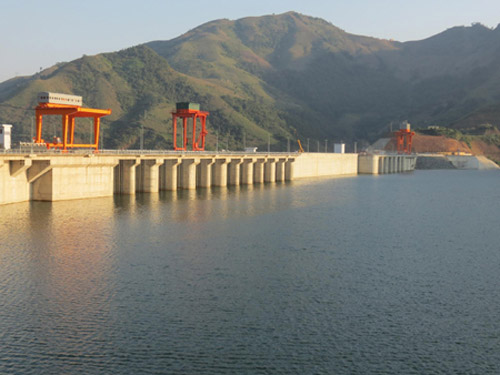|
Vietnam is on tight
budget, but generous in spending money
Economists have
warned that

The Dung Quat oil refinery, Ho Chi
Minh Trail, Son La hydropower plant have been called “super projects,”
because the smallest project – Son La plant – also has the huge investment
capital of VND60 trillion, or $3 billion.
There are numerous mammoth projects
like that. Despite the scanty income,
In fact, the announced investment
capital of public investment project is just the initially planned capital.
In most cases, their actual investment capital is much higher, which means
that the state budget has to spend more money than forecast.
The National Assembly ongoing
session, for example, is discussing on whether to approve the government’s
proposal to budget tens of trillions of dong for the Ho Chi Minh Trail
project.
The government has proposed to invest
VND24 trillion more in the project, while the capital would be sourced from
the government bonds. If the government gets the nod from the National
Assembly, the total investment capital of the project would be VND103
trillion, which is triple than the estimates figured out in 2007.
Prior to that, the National Assembly
once approved the government’s proposal on raising the investment capital for
the Son La hydropower project by VND14 trillion, an increase of 39 percent
from the initial estimates.
The Dung Quat Oil Refinery project
was started with the expected investment capital of $1.5 billion. But the
actual capital poured into it was $3 billion.
Investors have cited a lot of reasons
to prove that it is necessary to increase the investment capital. However,
analysts believe that they deliberately planned the projects with initial low
capital to prove the high feasibility of the projects, which helps them
easily get the approval from competent agencies. Later, they ask for the
permission to raise the investment capital to cover the high expenses and
spend more money.
No one has conducted surveys to find
out if it is really necessary to increase the investment capital of the
projects, and if the projects are feasible and useful with such high
investments.
However, it is undeniable that public
investments are always less effective than the other investment sources. In
other words, public investments “gobble up” much money of the scanty budget.
One year ago, the Ministry of Finance
once stirred up the public when proposing to delay the implementation of the
plan on increasing minimum wage, because the state budget was tight.
Minister of Finance Dinh Tien Dung
has recently warned that the state budget would see a shortfall of VND63
trillion this year.
In order to arrange money to fulfill
the multi-trillion dong projects, National Assembly’s Deputies have to ratify
the government’s bond issuance plan, with big worries. If VND170 trillion
worth of bonds is issued, the total bond value to be issued by 2014 would be
VND400 trillion.
US$1 = VND21,000.
Mai Thanh,
|
Thứ Hai, 4 tháng 11, 2013
Đăng ký:
Đăng Nhận xét (Atom)
Không có nhận xét nào:
Đăng nhận xét